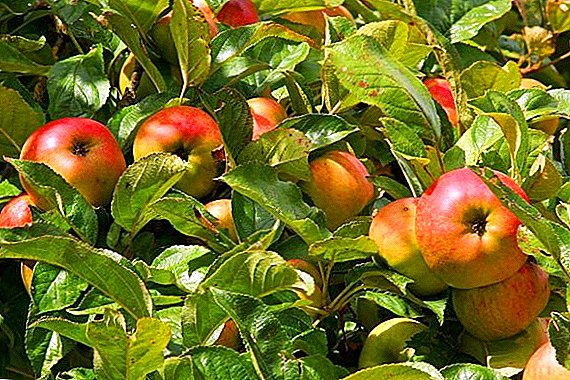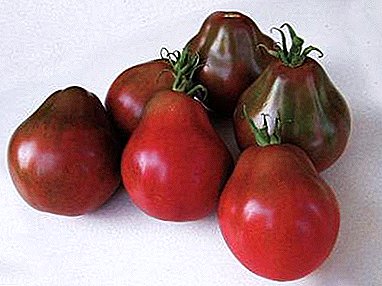
He appeared relatively recently - already in the two thousandth.
Will be the perfect choice for those who do not like to wait long - the farmer will see the first results of his labor already in July.
Especially delight novice farmers - caring for the bushes is no different complexity, variety very unpretentious and disease resistantand the vine matures by almost one hundred percent.
All of this is about Athos grapes.
What kind is it?
 Refers to table varieties, super-early gestation period (aging period maximum one hundred days), berries ripen by the end of July, sometimes in early August. The same terms are different Julian and Lorano.
Refers to table varieties, super-early gestation period (aging period maximum one hundred days), berries ripen by the end of July, sometimes in early August. The same terms are different Julian and Lorano.
Used in winemaking for the preparation of young red wines, usually in combination with other varieties to obtain a richer, richer bouquet.
Like the Lancelot variety is good for juices, liqueurs, jams.
Sweet, with a barely perceptible sourness, large berries are good and fresh.
Fruits tolerate transportation and storage..
The variety is highly productive, is in great demand among buyers, along with Tason and the Ruby Jubilee.
Description of Athos grape varieties
Bushes very vigorous. Not inferior in growth to the famous giants Anthony the Great, Murometsu and Original.
Bunches conical, dense, according to the type of “parent” - Kodryanki, but there are no peas in the berries.
Berries large, can reach weight in 10-12 g, dark blue, almost black, elongated with a pointed end.
Flowers bisexual.
Annual mature shoot brown, with reddish knots.
Vine rich brown color, powerful.
Skin dense, but when used almost imperceptible, the pulp reddish, fleshy, juicy with harmonious taste.
Sheet dark green, round, medium-sized, medium-dissected, slightly lowered from below.
A photo
More clearly with the grapes "Athos" can be found in the photo below:




Breeding history
Was withdrawn VC. Bondarchuk at the beginning of the two thousandth, in Ukraine, Luhansk region by crossing varieties "Talisman" and "Kodryanka".
Widespread recognition among business executives has received a grade in 2012when the quality of grapes and its early maturity were confirmed in practice.
Popular in Ukraine, Crimea, southern regions of Russia.
Specifications
Frost resistance above average (before -21-23 degrees Celsius). More winter-hardy varieties only Beauty of the North and Tukay.
Yield average - about 130 centners per hectare.
Susceptible to moderate watering.
The degree of resistance to phylloxera has not been established.
Is different high sugar accumulation, can hang on a bush for up to thirty days and increase sugar.
Wasps almost do not harm the berries. The recommended bush load is a maximum of 35 buds or 22 shoots.
Recommended pruning for six to eight shoots in order to preserve the fruiting. Young seedlings need regular feeding.
Diseases and pests
 Mealy dew are not threatened by this "musketeer", but it is worth protecting from gray rot.
Mealy dew are not threatened by this "musketeer", but it is worth protecting from gray rot.
The berries that are sick with this scourge will not be able to be stored, or, moreover, transported somewhere, and it will be possible to completely get rid of the illness only after two or three years.
To protect apply fungicides in the form of sprays: topsin, euparin, benleit, boskalid, pennazol, captan and others.
A preventive measure is also the provision of air access to the bunch - for this, the area around it is cleared of leaves.
For such diseases as anthracnose, chlorosis, bacterial cancer and other varieties - read in separate articles.
Against feathered grape lovers apply tight meshes with small cells.
Against wasps - trapping and spraying, burning nests (although it is known that they do not particularly love this grape).
If the farmer is more humane-minded (after all, wasps destroy harmful insects, such as aphids), he uses special mesh bags that cover the grapes.
The method is effective, but very costly in time and effort.
Another enemy is leafworms. Against them, shoots are sprayed with insecticides — Gardona, Keltan, Fury, Karbofos, DDVF, Cyanox, Elsan, Chlorofos, and others.
If you do not want to spend a lot of time and effort on caring for the vines, the Atos variety is your choice.
Grapes are almost not afraid of wasps or diseases - it is recommended only to attend to protection from gray rot and birds.
If you follow the simple rules of caring for the bush, watered and cut, it will regularly delight you with a rich, large and sweet berries.












